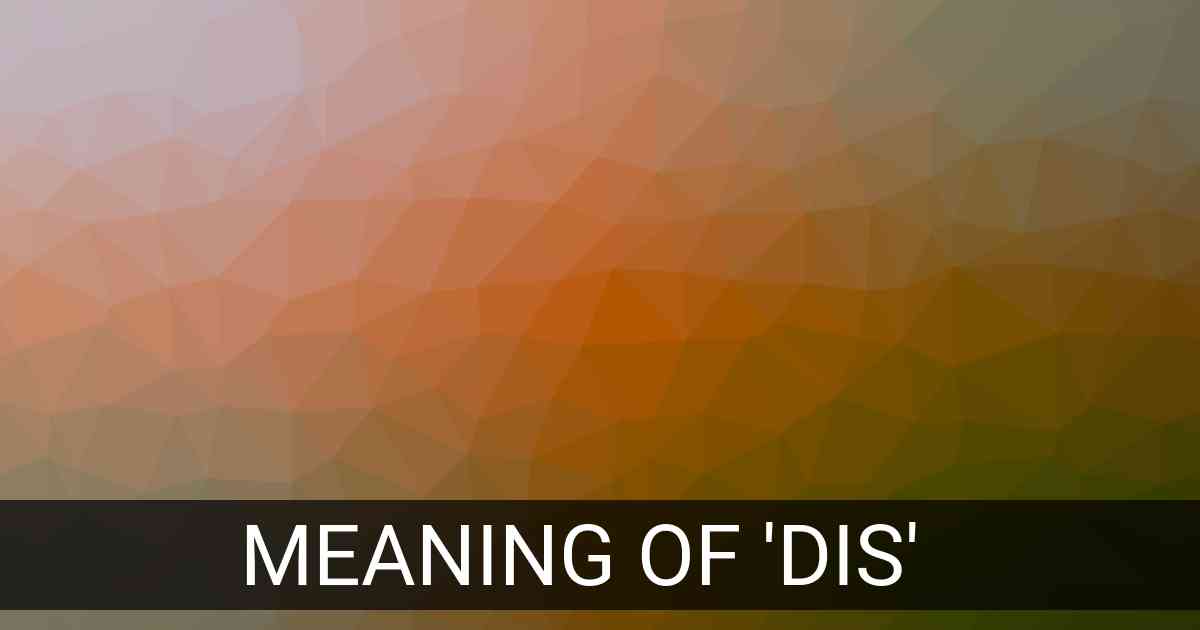
The meaning of ‘dis’ in Social Media is ‘this’.
Meaning of ‘dis’
The term “dis” is a common slang term used in social media that has become popular among younger generations. It is an abbreviation for the phrase “this is” and can be used to express agreement or support for something, as well as to indicate disapproval or rejection of something.
In its most basic form, the term “dis” can be used as a way to say “this is” in response to someone else’s statement or opinion. For example, if someone posts an opinion on Twitter and you agree with them, you could reply with “dis” followed by your own thoughts on the matter. This is a quick and easy way of showing your support without having to type out an entire sentence.
The use of “dis” also has more than one meaning depending on the context it is being used in. When responding to a post with “dis,” it can be interpreted as either agreement or disagreement depending on how it is used. For example, if someone posts their opinion and you reply with simply “dis,” it could mean that you disagree with their opinion or that you are simply not interested in getting into a deeper conversation about it. On the other hand, if you respond with your own thoughts after saying “dis,” then it could mean that you agree but would like to add something else to the conversation.
The term “dis” can also be used as a way of expressing disapproval or rejection of something. For example, if someone posts something offensive or rude and another user replies with “dis,” this could mean that they are rejecting what was said and notifying the poster that their comment was not appropriate. By using this simple term instead of writing out a longer response, users can easily communicate their disapproval without engaging in an argumentative discussion about why they don’t agree with what was said.
In addition to being used as agreement/disagreement/rejection tool in social media conversations, the term “dis” can also be used as an insult or putdown aimed at another user. This type of usage should generally be avoided since it tends to invite arguments rather than productive conversations. Instead of resorting to name-calling or insults when communicating online, try using professional language so that others will take your words seriously and respect your opinion regardless of whether they agree or disagree with what you have said.
Overall, the slang term “dis” has become widely popular among younger generations who use social media regularly due its ease-of-use and versatility when responding to others’ statements online . Whether being used as an expression of agreement/support/rejection/insult – understanding its various meanings and contexts will help ensure smooth communication between users online without any misunderstandings about what was meant by each phrase being exchanged between them.
Queries Covered Related to “dis”
- What is the full form of dis in Social Media?
- Explain full name of dis.
- What does dis stand for?
- Meaning of dis

